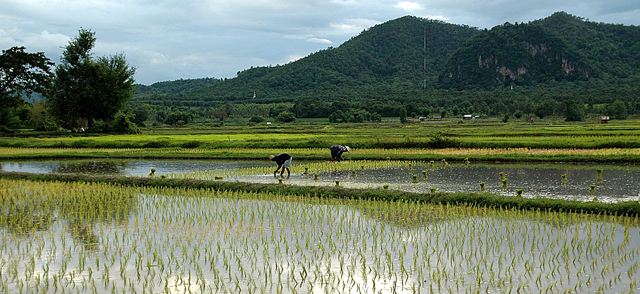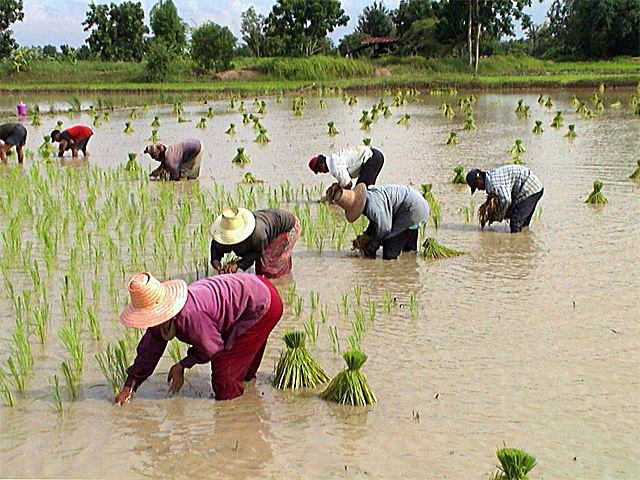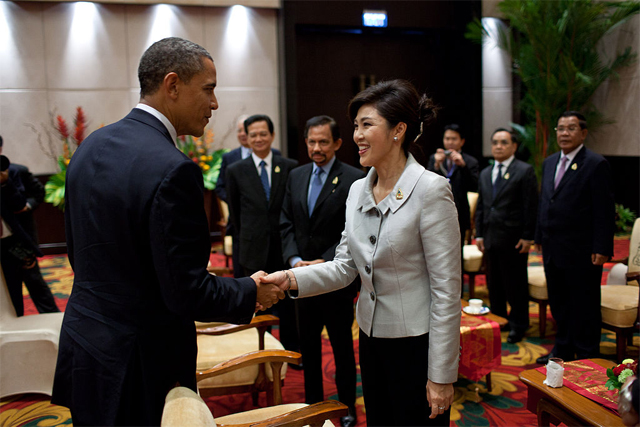The cultivation of jasmine rice, a crop that under-girds the economy of the Rural Thai people, is in a state of crisis and the consequences for Thailand may be significant. Alexander Macleod, writing for the political news analysis website Global Risk Insights last week, indicated that the market value of the rice has dropped by one-third since 2013 and it is now at its lowest point in nine years.

In his article, Macleod blamed uncertainty in the nation’s rice growing regions, as well as in the rest of the country, in part on the recent death of long-term monarch King Bhumibol Adulyadej. However, he placed most of the blame on past policies by the government and a couple decades of inept leadership.
The military junta that overthrew the government of Yingluck Shinawatra in 2014 ended the government-supported subsidies of rice production, one of her flagship programs. The generals made the argument that the program was squandering vast sums of money. The economies of the regions in Thailand that prospered under the incentive program, such as the northeast region, the so-called Isan Region, have been hard hit since the coup.
The author argued that support for Thaksin Shinawatra, who ruled from 2001 until he was overthrown by a military coup in 2006, and for his sister, Yingluck, is still reasonably strong in rural Thailand, though Thaksin is now much more popular than she is.

Of more interest for the study of rural Thailand is Macleod’s contention that the production of rice has become controlled by sizeable business conglomerates that have managed to take away profits from the farmers themselves. Powerful middlemen also squeeze profits from farm families. Furthermore, article 44 passed by the military government allows the Agricultural Land Reform Office to take lands away from farmers.
In addition, many farmers are mired in debt to local businesses, which has caused a radical drop in the percentage of farm families owning their own land—from 44 percent in 2004 down to 15 percent in 2011. Household debt in Isan could result in social instability, Macleod wrote. He argued that the political instability of Thailand in this century has resulted in the rural parts of the country becoming a political football, tossed back and forth with succeeding governments not honoring the commitments of their predecessors to rural land rights.
Macleod wrote that the military rulers are trying to prevent a resurgence of popularity for Yingluck in the upcoming general election, now promised for late next year. By promising an election, the junta aims to undercut possible support for her. They are considering a trial against her for corruption and dereliction of duty because of her rural rice scheme, but they are being careful to not set her up as a martyr, which a prison sentence would doubtless do.

But a key point is that Yingluck is not as popular in Rural Thailand as she once was. Despite being at one time a popular, attractive leader on the world stage, in December 2013 her government did not renew its commitment to the rural farmers to subsidize their rice production. In January 2014, the government failed to make payments to them and she lost the support of her rural constituency. She was overthrown, after a complex series of maneuvers, by a military coup d’état in May that year.
Organized dissent has now been squashed, though the author speculated that the junta will throw more money at the rural rice farmers over the coming year to try and ensure their support in the run-up to the election.